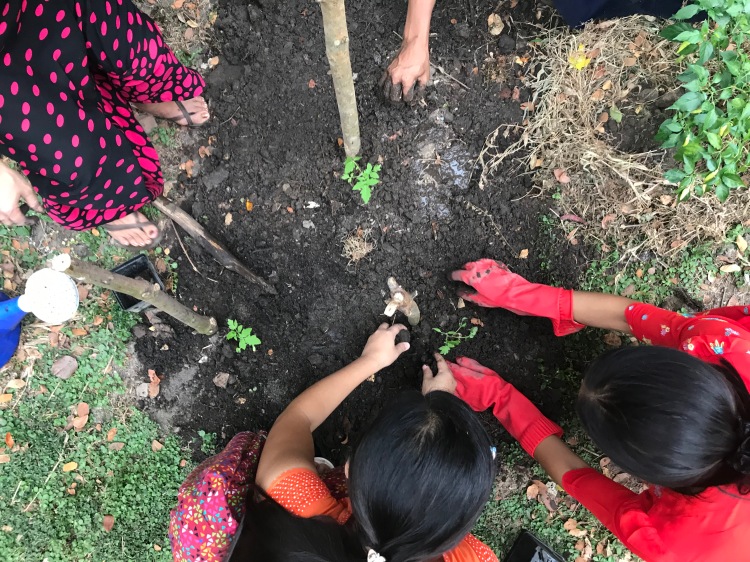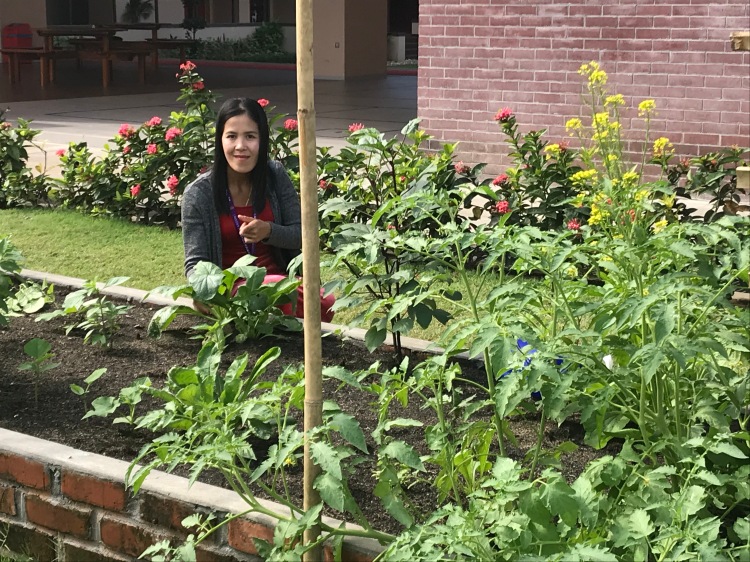JANUARY 2019
Read about our project so far, it’s interesting! The November update here, October here, the September one here, and the back story here.
Our mantra is that organic waste IS. NOT. TRASH.
Every day it gets clearer to us just how important that is. The streets and backyards of Yangon are filled with trash. And the tragedy is that it’s the same story every you look. In cities, towns and villages in Myanmar, and in many other parts of Asia.
We’ve gotta do something about it.
Here. Now. Fast.
Lots of people are talking about plastic. We’re drowning in it, and we can no longer ignore it.
Here in Yangon we’re seeing a lot of good initiatives on many fronts — Thant Myanmar is working with awareness and education, Trash Hero and Clean Green Yangon are two of many spirited groups working with cleanups, organisations like Conyat Create are working to create the conversation that for too long we’ve not been having, companies like RecyGlo are getting involved on a commercial scale with recycling.
Brilliant.
But it’s all about plastic (apart from RecyGlo who are working on many fronts).
And plastic, although it’s probably the most disgusting part of the waste stream, is just part of the story.

More to the story
Our story here at Bokashi Myanmar is ORGANIC WASTE. The soft, wet stuff that comes in some way from plants and food. Stuff that can perfectly well be returned to the soil, returned to nature, because that’s where it came from in the first place.
Organic waste is perfect for recycling!
It’s not complicated like plastic, that has to be sorted into many different categories before it can be recycled in the most effective way. It’s not complicated like metal, glass, batteries, electronics, building materials, that all have to be sorted and moved on to a responsible processing plant for rational and clean recycling.
Organic waste is easy.
Everything goes back to the soil. No sorting needed, no special knowledge or technology, or advanced processing plants.
The trick is to just give it back to the soil.
Soil food
But NO ONE is doing this! And you can only imagine how sad this makes us. Because the soil is screaming out to be fed and we are wasting the seemingly endless supply of “soil food” that we could be feeding it with.
Two-thirds of the waste that goes to landfill in Yangon is organic. The other one-third is non-organic, the fractions like plastic, glass, metal and so on. That’s TONS** of organic waste that ends up on the tip every day.
Another huge amount, we have no idea how much, just lies and rots at the roadside or ends up in the nearest river.
Which, even if it disappears, is absolutely not recycling.
All of this organic waste should be used for feeding the soil.
We can do that by making compost, by fermenting and digging it down into the soil, by making organic fertilisers or liquid nutrients.
There are various options, but they are different versions of the same basic equation: what comes from the soil should go back to the soil.
So. Why has this not been done before? Why is it not being done now?
(**2,000-3,000 tons per day, in Yangon alone)

Organic waste is “too difficult”
We’ve spoken to a lot of people about this.
The general conclusion is A. that it’s too hard, and B. that no one knows how to do it.
And making matters worse, people generally don’t see the difference between the two basic forms of waste: organic and non-organic. The first step in this process will always be to separate the two. Because the recycling approach is totally different.
Here at Bokashi Myanmar, we have a completely different mindset.
We’re not interested in sorting out the issues related to recycling plastic, glass and metal — we’ll leave that to the many experts in the field. For us it’s way too complicated anyhow.
But we are good at recycling organic waste. In fact, we think it’s quite straightforward from a practical point of view. Logistics and education are another story, but actually making a great organic fertiliser or super healthy soil is, for us no big deal. It’s what we do.
And we really want to get the whole Myanmar involved in this part of the waste puzzle. Because it’s something we can do on every street corner, balcony, back yard, urban farm, or even “real” farm.
Bokashi is hardly rocket science, anyone can recycle organic waste using this method, but it needs to start happening in real life.
Soon. Now.
End of speech. How about our projects here in Yangon?
They’re going great!
We’ve had a busy few weeks starting up new projects and moving our existing ones forward. You can read more about our waste management project in the Ward 67 community and our partnership with recycling startup RecyGlo here, in our November update.
This month we have three exciting new stories to tell, and I want to tell you about a gourd.

School garden!
First story: we are starting up a school garden project at Dulwich College, one of the leading international schools here in Yangon. A very cool project, as the students (the school has all ages) already have a nice kitchen garden.
But the soil? It’s good, but it’s all been brought in from outside and needs regular fertilising. Nothing circular about that.
Meanwhile, the school is working towards environmental certification in the form of a “Green Flag”. Recycling of dry fractions is underway and that leaves the wet. One of the teachers, Matt Grace, is now bringing bokashi into the school canteen.
All food scraps will go into the bokashi barrel from now on, the students will learn about how this works and why it is important, and then the different classes will add “their very own” bokashi fertiliser to their class garden beds.
So smart and inspiring. And there’s an educational angle at every turn. We’ll keep you updated how it goes! (And we have more international schools asking us to help them with this approach, makes us happy!)

U Thant House, an inspirational oasis
One of the most respected men in Myanmar history is U Thant. He was Secretary General of the United Nations from 1961 to 1971, a complex period of nation-building in which he provided a strong and clear leadership worldwide.
His house, here in Yangon, has long been abandoned but is now being restored by a family trust into a museum and educational center: the values he most stood for are those at the core of this new museum project.
U Thant House is an oasis!
The garden is one and a half acres of calm and shady peace here in the middle of Yangon. Next step, now that the house is more or less renovated, is to restore the garden into a true Myanmar-style haven. With indigenous trees and plants, and a totally sustainable message running through every part of the garden.
Like everywhere else in Yangon, the soil in the garden is poor. Sandy, undernourished. Like most other parks and gardens, the garden waste has been sent off to landfill or left languishing in a corner.
Our job, which we volunteered for within 5 minutes of visiting the house, is to help restore the soil, and to add what we can to help bring the garden to life.
We started a few weeks ago, working with the garden team at U Thant House a day or two per week to get the ball rolling. Ultimately, we hope to be able to share the bokashi story there with visitors, show what we’re doing, talk about why this is a valuable part of the sustainability story, help them learn if they wish.
To start with, we structured up the compost yard. And had so much fun in the process! We now have a very space-effective garden compost going that will produce compost for the garden, based on our bokashi methods (there is a difference to traditional composting; it’s faster, easier and more nutrient-dense. And extremely compact).
Next step, starting this week, is to start collecting food waste from the nearby market and next door school, and start building soil for U Thant House’s new kitchen garden with that. As well as boosting the compost no end with this essentially free and very valuable addition of nutrients.
It’s a brilliant circular story, sustainability at best, so we will work with getting it right. May take a while, but this is a fast-moving team with a lot of passion, so I suspect it will go faster than any of us think.

New bokashi yard!
Our next exciting news from these past weeks is that we think we have a new bokashi yard! Super exciting! We’re doing the last negotiations, Myanmar style, at the moment and hopefully it will all be clear this week.
It’s close to our existing yard, totally overgrown, but is twice the size with no house. So we have lots of space to work and can start receiving organic waste from the local markets (we have two), start making bokashi, and gradually start producing some organic compost and fertiliser products for sale.
We’ll also receive the bokashi barrels collected by our partner RecyGlo from corporates and households, swapping their full barrels with clean empty ones ready to go back to their customers for another round of food waste.
Cross your fingers this goes well!
And we’ll tell you next time how it’s all shaping up.

6 kilo gourd
Oh, and the gourd story I promised?
The other day we harvested this beauty. 6.2 kilos (we had a guessing competition, Inda won). It is grown in bokashi and sand and nothing else.
Our yard is a kind of desert, like many other houses in monsoon-drenched Yangon it has a half-meter thick layer of construction sand. Infertile and hard to grow anything in. But all the bokashi we have been digging down these last months, made from waste from the local market, has paid off. We’re harvesting these beauties every few days at the moment, and handing them out to the neighbours. Because there’s only so much gourd you can eat…
They taste great!
Amazing, really
And, when you think about it, it’s kind of revolutionary. No fertiliser, no tricks. Just sand and bokashi. If we can do this, anyone can. Any old piece of land can be made fertile with the right approach.
Which means anyone can grow food anywhere. Even in an urban desert.
Groundbreaking!
We’re happy.
/The Bokashi Myanmar team
And! Super thanks to our colleagues at Bokashi Norway! They amazed us this year with a Christmas donation to our project that will be a huge help in renting our new yard and setting it up. We really appreciate the global teamwork, and all the heart that goes with it. Hugs to you all!




3 thoughts on “Exciting new projects and a new bokashi yard!”